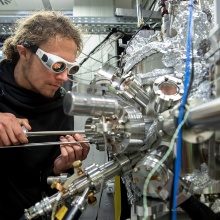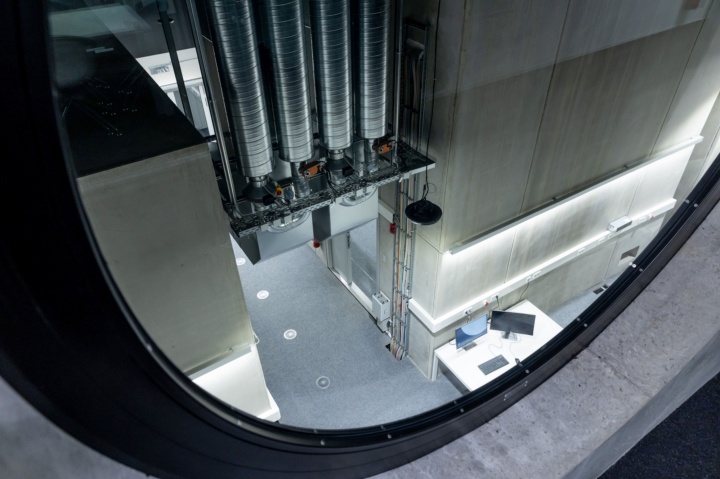Quantum research at the University of Stuttgart will receive two new large-scale devices that will enable pioneering innovations in the field of digitalization. To enable this, the Ministry of Science, Research and the Arts Baden-Württemberg has approved funding in the amount of 2.5 million euros from the "REACT-EU" development program, which serves to counter the economic and social consequences of the COVID-19 pandemic. The funding will be used for the acquisition of a unique, atomic force microscope at the new Center for Applied Quantum Technologies (ZAQuant), as well as a so-called dilution refrigeration for microwave studies of superconducting materials that are employed in quantum computers.
The novel ultra-low temperature atomic force microscope with codename QC.AFM will provide unique infrastructure for the interdisciplinary research teams of the competence network “Quantum technologies – Baden Württemberg“ (QT.BW). It will enable exploration of molecular-scale quantum technologies. The microscope is capable of measuring qubit networks composed of self-assembled molecules or spin centers in 2D materials that are created by nano manipulation. Qubits are the basis of all quantum technologies, and magnetic molecules and spin centers in 2D materials are natural, identical quantum systems that can be produced cheaply and in large quantities. Their potential for quantum technologies is largely unexplored, because their miniscule size of less than 10 nanometers precludes them from observation by most instruments.
QC.AFM will use pulsed microwave excitation to achieve quantum coherent control of molecules and spin centers with atomic spatial precision. It will make use of short-ranged exchange interaction between qubit and microscope probe tip to resolve individual qubits in dense networks and in insulators. “QC.AFM will make it possible to measure quantum phenomena in molecular networks with unprecedented precision”, says Prof. Sebastian Loth from the Institute for Functional Matter and Quantum Technologies at the University of Stuttgart. “The new microscope opens up new horizons for quantum nanoscience and especially for the utilization of two-dimensional molecular materials for quantum simulation in large qubit networks.”
3He-4He dilution refrigerator for ultra-low temperatures
The second piece of large-scale equipment, a 3He-4He dilution refrigerator, will be installed at the Institute of Physics (1) at the University of Stuttgart. It is at cryostat that employs a mixture of the two helium isotopes 3He (“helium-3”) and 4He (“helium-4”) to achieve extremely low temperatures. These so-called millikelvin temperatures are typically less than 0.1 degrees above absolute zero (-273.15°C). Superconducting quantum computers operate at such low temperatures to ensure nearly lossless microwave characteristics of their superconducting elements.
While research at the Institute of Physics has so far focused on fundamental solid-state properties of various classes of superconductors, the new dilution refrigerator will be used to extend such studies towards specific technological applications in quantum computers. Of particular interest are granular and strongly disordered superconductors with high kinetic inductance, corresponding to a low density of superconducting charge carriers, which can be optimized for individual use cases. Applicant Dr. Marc Scheffler of Physics 1 emphasizes: “The new 3He-4He dilution refrigerator will enable experiments that are closely connected to applications in quantum computation, with the goals of acquiring a deeper understanding and the technological optimization of their material properties.”
Expert Contact:
Prof. Sebastian Loth, University of Stuttgart, Institute for Functional Matter and Quantum Technologies (FMQ), Phone +49 711 685 65252, E-Mail
Dr. Marc Scheffler, University of Stuttgart, Institute of Physics (1), Phone +49 711/685 64944, E-Mail



